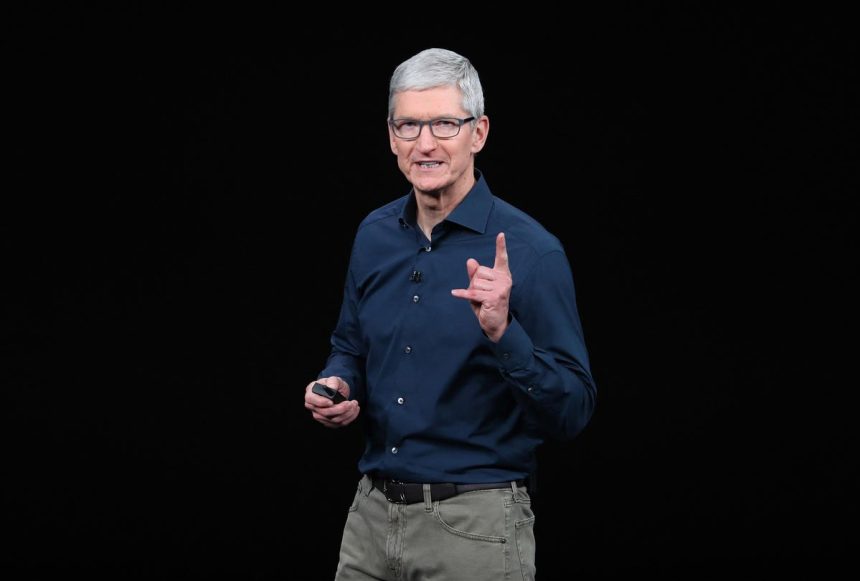Amid all the tumultuous change that has affected business and society in general in recent years one aspect has not received as much attention as it perhaps might have. This is the extent to which big business in particular has ceased to be automatically associated with conservative politics and has instead often allied with more liberal elements. Of course, companies in such sectors as oil and gas and mining are more likely to align with politicians sympathetic to their desire to drill or mine in areas that are frequently seen as environmentally sensitive. But when it comes to wider social issues, such as those surrounding diversity and equality, they — or at least their chief executives — are increasingly likely to speak out.
This might be partly down to the fact that in countries such as the U.S. and the U.K. parties of the right have become more populist and less keen on policies, such as free trade and globalisation, which have long held dear by corporations. But it also has something to do with employees and consumers becoming increasingly willing to press CEOs to make a stand on certain issues.
The rise of CEO Activism, as it is known, has been charted by various academics and in the U.S. is reckoned to have been given a boost by the arrival of Donald Trump as president. There has been increasing evidence of the phenomenon in Europe in this time, but not to the same extent as in the U.S. and, according to Professor Georg Wernicke, who has been studying the area for some time, there were a few instances in Asia before the practice died out.
While most academic studies look at the effect on corporate performance of companies becoming involved in these matters, the paper just published in the Journal of Business Ethics by Wernicke, an associate professor of strategy and business policy at HEC Paris, and Aurelien Feix from TBS Education looks at the effect of such actions on society in general. The authors argue that, while many people are in favor of business leaders making the stands they have, such actions are not always good for democracy. In a recent interview, Wernicke said that he thought that executives often did not think things through. Backing a liberal cause might appeal to certain customers who want to know where the companies with which they deal stand on certain matters and to would-be employees who increasingly want their employers to align with their own values, but there was a danger of alienating others. It was one thing for a company such as the outdoor apparel company Patagonia to make a stand since it had always operated as an activist organization and attracted similarly-minded staff and customers. “But it is more difficult and complex for bigger companies,” he explained.
He also drew a distinction between issues, such as Black Lives Matter, where it was obvious that companies should make a statement, and other issues, where there was a less clear connection and it might be better for a CEO to stay neutral.
Borrowing from political philosophy, the article introduces the idea of there being two perspectives through which CEO activism can be viewed: “liberal” and “republican.” The former considers these actions as good for democracy as long as they are lawful and respect people’s rights, while the latter argues that for that to be the case they should go beyond legality and rights and take into account such factors as the quality of debate and fairness. In other words, CEOs should be “civic-minded” when intervening in issues beyond business.
It seems that Wernicke, for one, is not convinced that these leaders are always thinking along these lines. Pointing out that a linked project was looking at the connection between narcissism and activism, he said he had a “hunch” that some CEOs were adopting stances as a sort of “brand building.”
In an effort to provide some guidance on when leaders should become involved in this way, Wernicke and Feix suggest some criteria that civic-minded CEOs could apply to gauge whether they should make a public intervention. These are added insight, i.e. bringing information about the implications of a government policy for employment or enterprise; timeliness, that is, intervening at a time when it can make a difference rather than after the event — Wernicke cited the example of executives criticising the decision of Britain to leave the E.U. after the vote rather than before it; constructiveness, or making a useful contribution rather than merely signalling, which might just contribute to the growing polarization in society; and transparency, by which they mean that a leader should explain why they are intervening. An example was Apple CEO Tim Cook speaking out as a “proud member of the LGBTQ+ community” to express his concern about a spate of laws restricting discussion in schools of issues affecting this community.
But, as Wernicke made clear, sometimes it is less obvious. Indeed, he suggests that the whole area is “a bit of a minefield” for CEOs. This seems an understatement. After all, in the increasingly contentious world in which we live, who is to say which is the right stance to take. Just because a majority appear to favour one direction over another does not necessarily make it right. As Wernicke says, “People tend to be happy about intervention when they agree with a stance, less so when they don’t.”
Read the full article here





